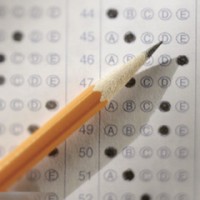 Clarksville, TN – Educating our children seems to be a no-brainer when you contemplate the reasons behind this procedure. First, we want them to be able to grow up and support themselves. Next, we’d like to think that they will become discriminating intelligent thinkers. Third, we hope that they will be responsible citizens who care about others. Fourth, we assume that when they become parents, they will have the skills they need to be successful. We’d like for them to be able to manage their money so that when they retire, they will be able to enjoy their senior years.
Clarksville, TN – Educating our children seems to be a no-brainer when you contemplate the reasons behind this procedure. First, we want them to be able to grow up and support themselves. Next, we’d like to think that they will become discriminating intelligent thinkers. Third, we hope that they will be responsible citizens who care about others. Fourth, we assume that when they become parents, they will have the skills they need to be successful. We’d like for them to be able to manage their money so that when they retire, they will be able to enjoy their senior years.
We don’t want our children to become slaves.
In other words, we want them to become successful human beings with a social conscience and an understanding of what has gone on in the world prior to their entry so that they will make intelligent decisions about the future. We pray that they will be able to have and use some common sense.Let’s look at a few of the ways we are now going about educating children in our schools at the present time.
How many people in the workforce today are tested from 50 to 75 per cent of the time they are working? “What?” you ask. “How could you accomplish anything at work if you were taking tests all the time?”
 Three guesses at what children are doing in the classroom these days….taking tests constantly. Is this preparing them for life in the ‘real world’ or is it just making them test takers?
Three guesses at what children are doing in the classroom these days….taking tests constantly. Is this preparing them for life in the ‘real world’ or is it just making them test takers?
Next, how many people in the work force use algebra, chemistry, physics, trigonometry, and other forms of higher math and science on a daily basis? “Very few,” you reply, “and certainly not me!”
Laws are now being put into place to require that all students take higher math and science classes. Yes, it’s critically important that our engineers, research scientists, and other people who do use higher math and science daily understand these concepts and are able to use them correctly. On the other hand, how many jobs not in these fields require their use? Not everyone is a rocket scientist nor should they be.
 Here’s what’s happening. Algebra is being taught even in first grade these days. These kids (who, by the way, are in a developmental stage where if they see a cat mask on a dog will identify the animal as a cat!) don’t even know basic addition and subtraction facts yet. Do they really need to try to understand an “unknown” in an equation?
Here’s what’s happening. Algebra is being taught even in first grade these days. These kids (who, by the way, are in a developmental stage where if they see a cat mask on a dog will identify the animal as a cat!) don’t even know basic addition and subtraction facts yet. Do they really need to try to understand an “unknown” in an equation?
Does this give you a hint at why the guy at the cash register can’t figure out your change if the cash register doesn’t provide the information?
Reasoning skills come from practice. With pressure to teach facts that have to be regurgitated on standardized tests in the forefront of teaching, classrooms are conducted with single subjects one at the time—i.e., language arts from 8:00 to 9:30 a.m., math from 9:45 to 10:30 a.m., etc. That means that children tend to think of these subjects in isolation. Some of the difficulty many students have with word problems stems from the lack of ability to bridge the gap between subjects.
Any good educator will tell you that repetition is the key to learning. That’s why music teachers excel in communicating a song that is to be learned; the song is sung repeatedly until the child knows it. In modern classrooms, there is little time for repetition. So much information is required on standardized tests that repetition time is minimal. Skills are presented and are practiced briefly and then it’s time to go on.
A teacher who is the mother of a third-grader told me recently that her child who is quite intelligent is having a hard time in school this year because they have to push constantly to get all the “standards” covered in time for TCAP. This is not an isolated incident.
Is this really the way to provide an education for our children?
 What about the kids who are adept at working with their hands? What about the people who are going to need facility with machinery to accomplish their jobs when they grow up? What is going to happen when lack of physical education on a daily basis is going to produce an obese workforce where people miss work because of resulting health problems?
What about the kids who are adept at working with their hands? What about the people who are going to need facility with machinery to accomplish their jobs when they grow up? What is going to happen when lack of physical education on a daily basis is going to produce an obese workforce where people miss work because of resulting health problems?
Parents need to find out what the interests and aptitudes of their children are in order to see that they have the right preparation for life. Not everyone is going to college. Some people are going to require education in ways that are not being offered in school.
I have read about a school in a European country where children run a retail business as their training. They order the goods, sell them, and do all the paperwork required to make a success of the business. They are living life as they learn. Most kids in our society think of school and then of life as a whole different world.
Parents have to become involved in their children’s education. Not only do they need to oversee homework, but they need to find out what else the child needs to know. Teaching children about handling money begins at home. Learning how to do simple home, clothing or car repairs means everything if Mom or Dad is the one who teaches you.
It takes not only a village, but an aware populace to rear a child. Get involved and do your part. We all need our children to succeed and we are responsible for bringing that about.
The challenge is to get involved. As Pogo said, “We have met the enemy and he is us.” It’s a lot easier to let someone else do it that to get off the couch and make a difference ourselves.


